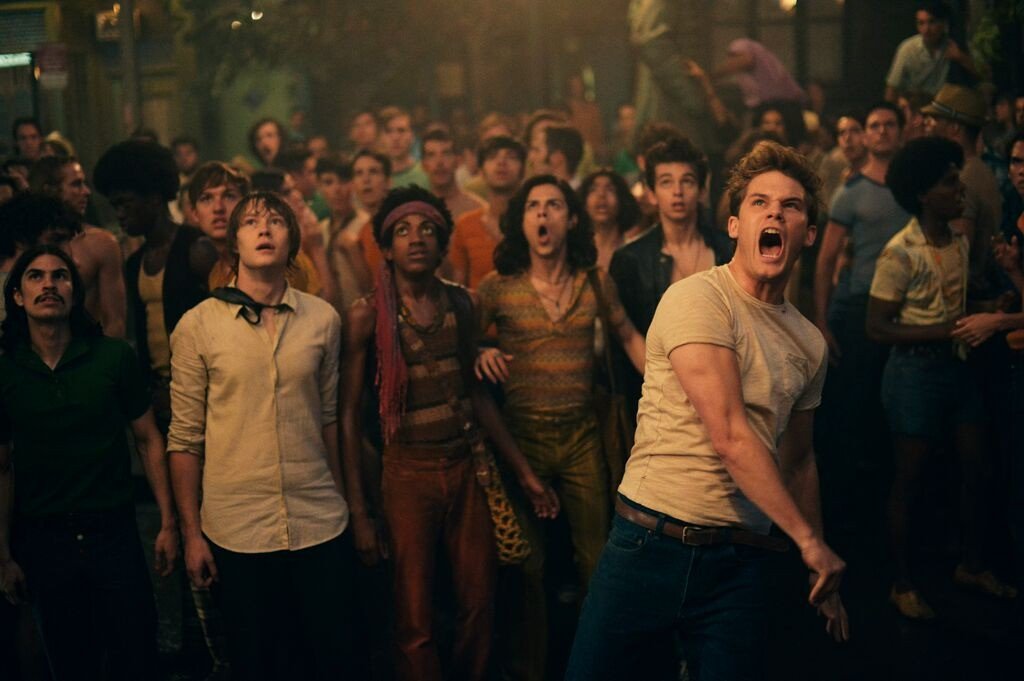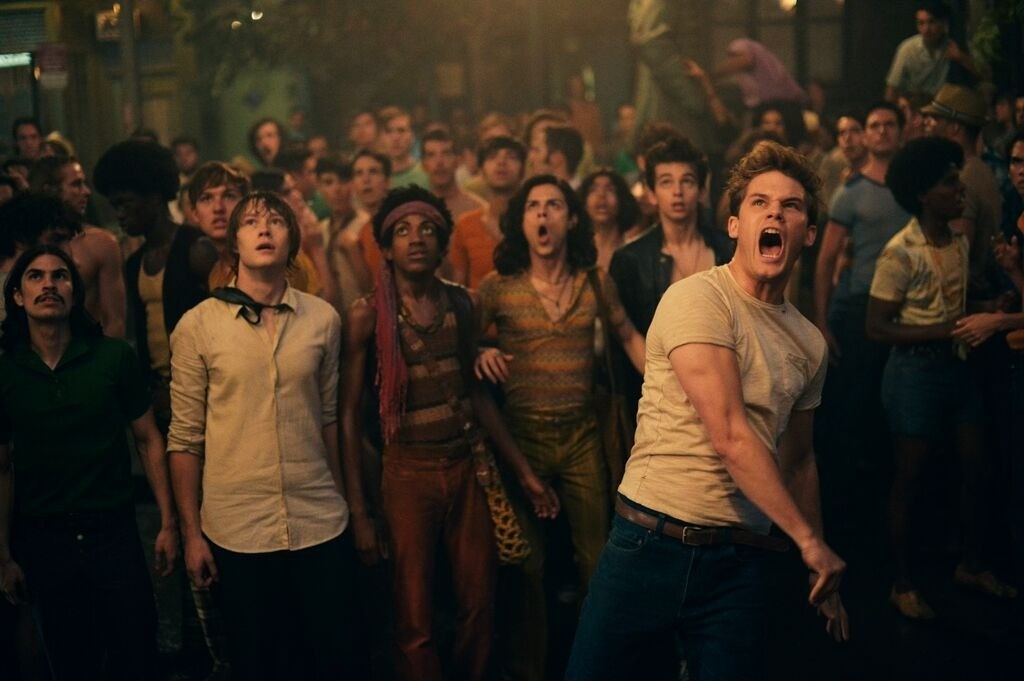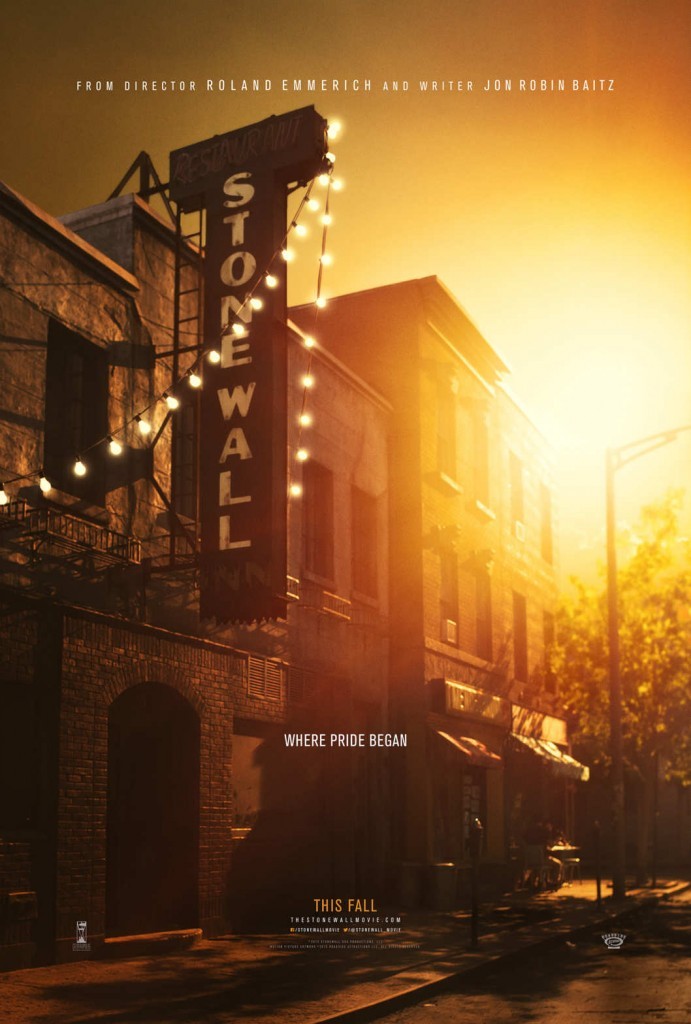Why the Stonewall movie marketing campaign got it wrong

 Writer Brian O’Flynn (pictured, right) looks at the controversy that continues to brew about the Stonewall movie – and how it points to wider issues in the LGBT community…
Writer Brian O’Flynn (pictured, right) looks at the controversy that continues to brew about the Stonewall movie – and how it points to wider issues in the LGBT community…
By now, we have all heard about the controversy surrounding the upcoming Stonewall movie.
Fury erupted when the trailer for the movie depicted a young, attractive, conventionally hot, white, cisgender gay male as the protagonist. This portrayal stands in stark contrast to the messier, more multicultural historical reality. It is widely recognised that Marsha P. Johnson, an African American drag/street queen/trans woman*, and Sylvia Rivera, a gender fluid/transfeminine* sex worker, instigated the Stonewall riots (*both of their gender identities were complex and are discussed further here and here).
Roland Emmerich, the director of the upcoming film, posted a public response to the outcry with the intention of allaying critics’ fears. To quote him directly, “when this film… finally comes to theaters, audiences will see that it deeply honors the real-life activists who were there…”
While I will give Emmerich the benefit of the doubt on the basis of his heartfelt plea, the real problem that needs to be addressed here – which Emmerich himself pointed out – is the film’s marketing campaign.
It appears marketing executives did not believe that people would want to see a movie celebrating people of colour, or gender fluid people, or sex workers. In order to make the unbridled heroism of these people palatable, they would have to stick a big, sexy white man out front. In short, they sold out, and in doing so reinforced continuing oppression of trans women of colour and sex workers.

The reason this action has been met with such vitriol is simple; trans people must live with this erasure all the time. Despite being extremely vocal and active in the fight for LGBT rights, constantly furthering the cause of same-sex marriage and other mainstream concerns, trans people all too often find themselves deserted in their own time of need. They push and push for the rights of the LGB community, expecting a hand-up in return, only to grab empty air.
Ask your activist friends what work they did on marriage equality campaigns in their lifetime and I’m sure many of them will wax lyrical about their good deeds. Ask again how long they spent campaigning for transgender recognition legislation and they will likely falter.
Similarly, a quick perusal of Attitude’s contributor’s page will show several entries in recent months from black gay men describing their experiences of racism at the hands of the LGB community. Their experiences are not unique, but echoed by countless LGBT people around the world.
The LGB community has a problem. We benefit from the activism of more marginalised groups, but we often forget to return the favour. Sometimes, we even participate in their oppression. Too many LGB men and women are still transphobic and racist.
Trans women of colour are perhaps one of the most marginalised groups in the world, and their oppression is statistically frightening. The death toll of trans women of colour in the US cannot be dismissed as insignificant. Trans WOC are so likely to suffer attacks and abuse that many live in constant fear. This sort of oppression feels like a thing of the past to many white gay men living in the UK and Europe, but it is still an everyday reality for some.

In light of this harrowing reminder, isn’t the uproar over Stonewall pretty understandable? Many trans people, POC and sex workers have fought at great personal risk for LGB rights throughout history, and have watched as the LGB community’s liberation advanced much faster than their own. Just when they might be expecting a little bit more help from an LGB community that has achieved same-sex marriage across the US, UK and Ireland, the community instead busies itself with celebration. To add insult to injury, this celebration then sidelines the more marginalised groupings in the story, in order to glorify the white, gay man whose liberation has come so much faster than anyone else’s.
It is absolutely not enough that our more marginalised sisters and brothers were “included” in the Stonewall production; they should be the focus of it. Instead, from what we’ve seen so far, it appears they are mere supporting actors, all tied to the exalted central figure of a white cisgender man, whose identity is so much easier for audiences to digest.
A movie describing the fight for our liberation should not be remotely concerned with respectability politics; it should portray the nittiest, grittiest aspects of this long battle. LGB people should not be concerned with packaging ourselves as “just like the rest of you!” Our identity is unique and we should embrace that, rather than try to whitewash it and homogenise it to make it appealing to our straight, cis counterparts.
Words by BRIAN O’FLYNN.
More by Brian:
